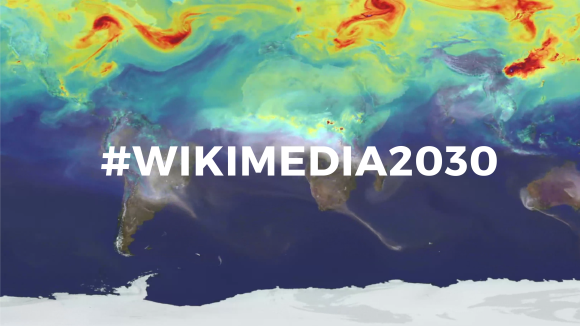
In January 2017, the Wikimedia movement started an ambitious process to find alignment, rebuild trust, and identify a shared strategic direction for the 2030 horizon.
Surprisingly, it worked.
Dozens of groups and organizations have now come together to endorse the Wikimedia movement’s new strategic direction, focused on “Knowledge as a service” and “Knowledge equity”.
The direction is the result of months of discussions, surveys, interviews, and research to better understand the needs of communities, the vision of the movement, and future trends (like misinformation) relevant to the Wikimedia movement and its role in the ecosystem of knowledge.
As a movement, we discussed what we shouldn’t change, what we should improve, and what would change around us. Several themes emerged from the mass of information and were further integrated into successive drafts of the direction. A stable version emerged shortly before the Wikimania conference in August and was discussed extensively online and in Montréal. It was rewritten, revised, refined, and eventually became the final version of the strategic direction.
Beyond developing content as we have done in the past, the resulting direction is composed of two components:
- Knowledge as a service: To serve our users, we will become a platform that serves open knowledge to the world across interfaces and communities. We will build tools for allies and partners to organize and exchange free knowledge beyond Wikimedia. Our infrastructure will enable us and others to collect and use different forms of free, trusted knowledge.
- Knowledge equity: As a social movement, we will focus our efforts on the knowledge and communities that have been left out by structures of power and privilege. We will welcome people from every background to build strong and diverse communities. We will break down the social, political, and technical barriers preventing people from accessing and contributing to free knowledge.
On October 26, groups and individuals started declaring their intent to work together towards this future by endorsing the direction. A week later, over 70 groups and organizations have already committed to participating in the next phase in good faith and to define, by Wikimania 2018, how to come to an agreement on roles, responsibilities, and organizational strategies that enable the movement to implement that future.
The signatories include regional chapters from all around the world, thematic organizations, user groups, and the Wikimedia Foundation. Among their comments, some groups have expressed their hopes brought by the direction. CIS-A2K shared their “hopes that the divide between Global North and Global South will be bridged effectively”. The Wikimedians of Bashkortostan endorsed “with hope for more attention to the question of regional languages”. The Wikimedia Community User Group Brasil hopes that the direction “can be a guiding light for the whole movement on the path to healthier and more inclusive communities”.
Individuals called the direction “Outstanding” and hoped for “un futuro como movimiento más equitativo y diverso“. Some even wrote essays about why the process and direction matter to them. A few Wikimedians also expressed their concerns with the text or the process.
Many groups and individuals are now looking forward to the next steps of the process and to making the direction a reality, like Wikimedia Portugal‘s “group of new members committed to collaborate regularly in its implementation”. High-level planning for the next phase has started and will be further developed through November, notably by learning from what worked and didn’t work in the first phase. Some of the upcoming discussions will revolve around “big questions” like movement roles, governance, and decision making, while others will be more goal-oriented and will aim to build organizational strategies and multi-year strategic plans.
Guillaume Paumier, co-lead architect, movement strategy
Nicole Ebber, movement strategy track lead for organized groups

Can you help us translate this article?
In order for this article to reach as many people as possible we would like your help. Can you translate this article to get the message out?
Start translation